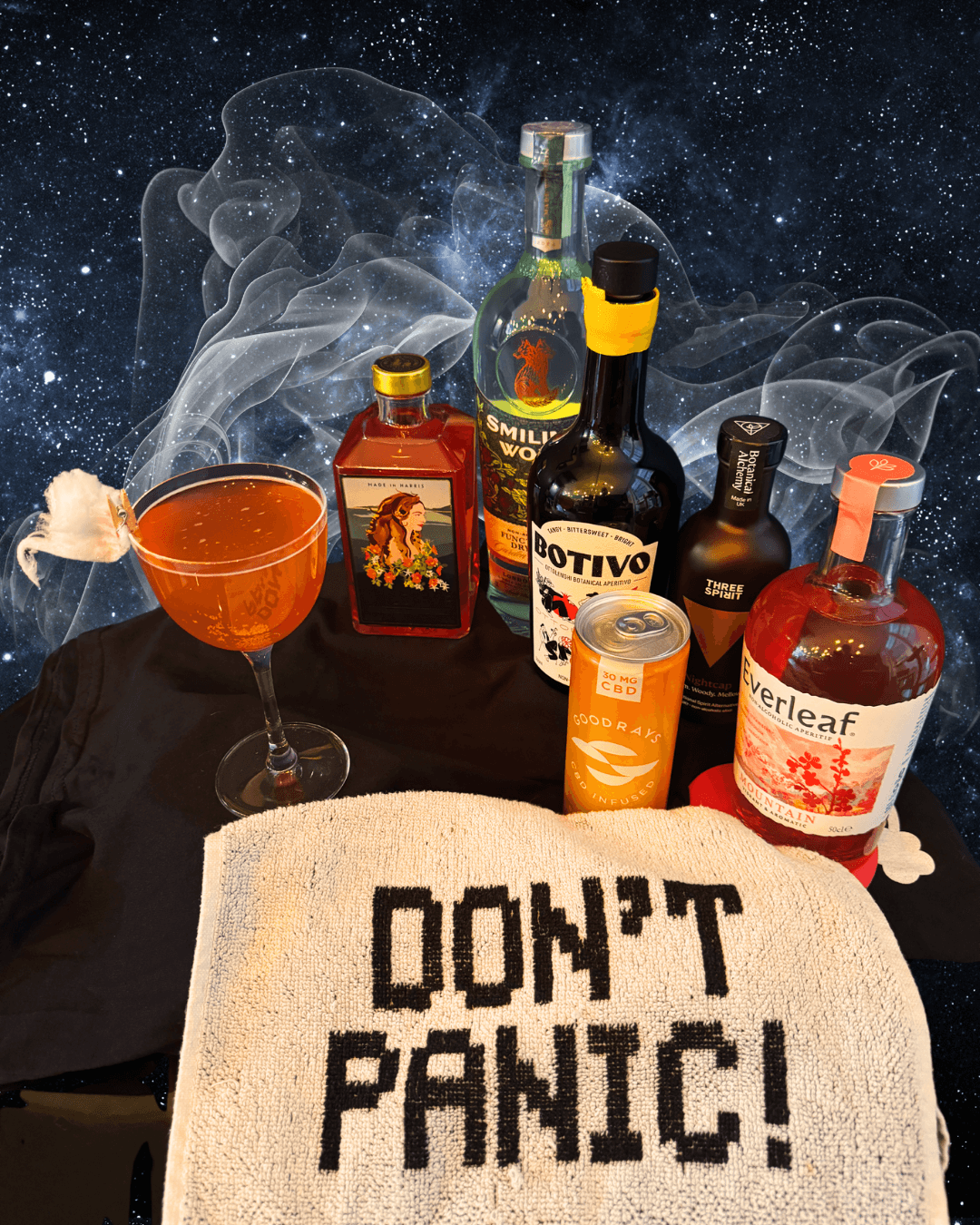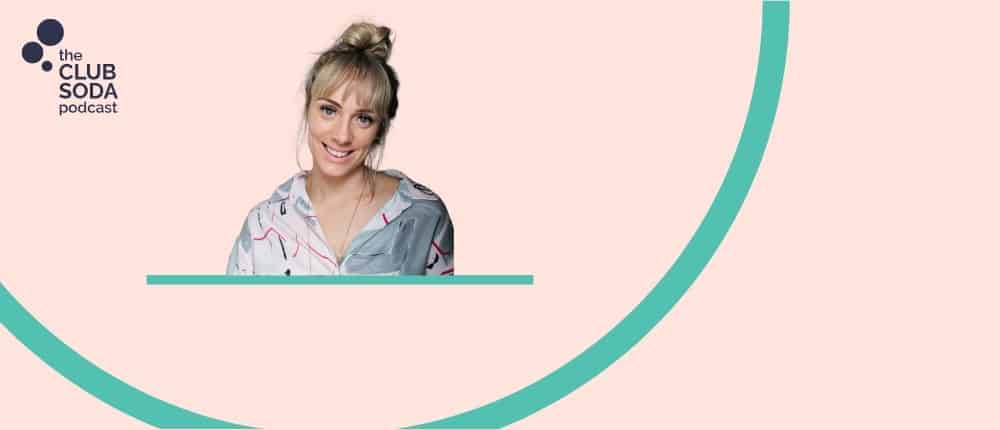
This website uses cookies to improve your experience. We'll assume you're ok with this, but you can opt-out if you wish. Read More
The Next Round: What happens after you change your drinking?

Putting pen to paper can be intimidating, especially if you don’t feel you have a flair for writing, and that’s exactly how Finn, founder of Positive Planners used to feel. But journaling can be a powerful tool when it comes to processing your thoughts and feelings. Even just taking the time to acknowledge them and release them onto the page can help. In this week’s podcast, Dru gets chatting to Finn Prevett about how she started Positive Planners, and how journalling became an essential tool in monitoring her mental health.
Finn is Co Founder of Positive Planners. She previously co-owned an award-winning hairdressing and beauty salon in Cambridge for 8 years. This gave her a fantastic grounding in what’s needed to run a business. She is also very creative, particularly when it comes to problem solving and marketing. She and business partner Ali set up Positive Planners with a crowdfunding campaign in May 2017. You can find Positive Planners on on Instagram and they also have a Facebook group which is full of like minded individuals that are enjoying the benefits of journaling. Finn has also generously extended a discount code to Club Soda members. Simply use clubsoda15 to receive 15% off Positive Planners books. This code is valid until 30th April 2021.
Positive Planners make planners and journals, they’re all designed to support mental health and wellbeing, and to encourage the user to make their mental health a priority. I started journalling because I was going through my own mental health crisis. Just after I had my son, I became quite unwell with my own mental health. I began writing as a way to look after myself. Writing really wasn’t something I’d ever done before. I’m dyslexic, and I have that imposter syndrome telling me that I’m not very good at writing, it doesn’t look very neat, I don’t know how to spell, I can’t use punctuation, all of that sort of stuff. It’s drummed into us as children that these things are important, and that really held me back. But something in me just knew that I needed to pick up a pen and a piece of paper and, and it became a place to release. It really helped to support me through a very challenging time. So that’s how it all began, having a mental health breakdown and realising that writing could could be a very therapeutic tool.
Now, my business being one that supports people with their mental health, I find that my own mental health is much better. I’ve come to a place in life where I can accept that we have good days and bad days, and that when I’m in those bad times, I don’t have to feel the shame that I felt before. I’ve learned so many amazing ways of looking after myself. What we’ve achieved with the Positive Planners is to create a space for people to to be really open and honest about their mental health.
I write so I can hear myself think
Finn Prevett
There’s a quote that we came up with for one of our books, ‘I write so I can hear myself think’. That is so true. I always come back to that quote when I’ve lost my way a bit with journaling. It just reminds me that writing is a way of getting to know yourself better and understanding yourself better. When you’re going through a big change, like changing your relationship with alcohol, there are many layers of things to process. Journaling is an amazing tool to help you navigate them, to take it step by step through those layers. It can help you to listen to your mind, which may take you to some really scary places. Journaling allows you to be that kind voice that brings you back and gives you the support that you need. Sometimes journaling is really messy and angry and emotional. But once you get through that anger and emotion on the pages, you can enter into a more compassionate space. Isn’t it amazing that we can do that for ourselves through the use of journalling?
I’ve had times where my journaling page has been a big scribble because I haven’t got the words. This is where journaling can take on so many different forms. It can be collage, photographs, art, journaling in any medium can allow you to go through a process of learning.
If you’ve not journaled before, it can feel really intimidating to know where to start, that’s the thing that we hear most from the Positive Planners community. A simple prompted journaling, can really help to reflect on something that’s happened or an event that’s triggered some kind of emotion. You could take it a step further and give yourself five minutes on a timer. Five minutes doesn’t feel too pressured. If you’ve got your prompt and your timer you can just go for it and see where it takes you. Realise that this is for you, you’re not writing this for anyone else. And what you choose to do with it afterwards is entirely up to you. Some people find it very therapeutic to screw things up or get rid of entries, especially if there is a fear of someone else reading it. The two very guided journals that we have break it down into questions that you you would answer in the morning and in the evening. They’re really simple questions, but they do help you to analyse yourself.
Gratitude doesn’t have to be big and glamourous. It can just be the basics like having clothes to wear or a roof over your head.
Finn Prevett
Our planners also promote positivity and the practice of gratitude, and also encourage you to look after yourself. It can be so hard to find things to be grateful for, know that you’re not alone in feeling that way. My biggest tip is to take it back to basics. In one of my lowest periods I felt hopeless, like there was nothing to be grateful for. I had to start with little things like ‘I ate lunch today’ or ‘I brushed my teeth’. In the depths of depression, it can be a massive achievement to brush your teeth or have a shower or eat a meal. Gratitude doesn’t have to be big and glamourous. It can just be the basics like having clothes to wear or a roof over your head.
Many people living with mental health illnesses have lived for periods of time with unresolved trauma. For me, a way of dampening down the effects of unresolved trauma was to binge drink. I’d drink to help with stress and anxiety. Now I know that it really just makes all those things much worse, it was just a way of masking things. I also used to being busy as a way of masking other things. When I had my son, I wasn’t able to to be so busy anymore, my life slowed down.That’s where my mental health really started to suffer. As a consequence, I started to evaluate what was and what was not working for me and my mental health, and that was when my relationship with alcohol just drastically changed. It got to the stage where I just didn’t want to drink anymore. I stopped for a long time and it was such a liberating experience. Journaling was a helpful tool in observing my behaviour and feeling about drink, it really helped me to process a lot in that time.
I started to notice when I really wanted to drink. It would often be related to stress, or as a reward or a treat. But I started to ask myself how that would affect me tomorrow. I was trying to think of my future self and how I can protect and look after that future self rather than the self right now. I stopped drinking altogether for around six months. My friends were really supportive. I know that many people experience friends trying to coerce them into drinking, but I didn’t have that experience. I reintroduced drinking gradually, and I was mindful about choosing when I would and wouldn’t drink.
If you’re interested in how journaling might be used to change your drinking, check out our courses, where we encourage you to use journaling to reflect and record your mindful drinking journey.
This website uses cookies to improve your experience. We'll assume you're ok with this, but you can opt-out if you wish. Read More
| Name | Domain | Purpose | Expiry | Type |
|---|---|---|---|---|
| wpl_user_preference | joinclubsoda.com | WP GDPR Cookie Consent Preferences. | 1 year | HTTP |
| PHPSESSID | www.tickettailor.com | PHP generic session cookie. | 55 years | HTTP |
| AWSALB | www.tickettailor.com | Amazon Web Services Load Balancer cookie. | 7 days | HTTP |
| YSC | youtube.com | YouTube session cookie. | 55 years | HTTP |
| Name | Domain | Purpose | Expiry | Type |
|---|---|---|---|---|
| VISITOR_INFO1_LIVE | youtube.com | YouTube cookie. | 6 months | HTTP |
| Name | Domain | Purpose | Expiry | Type |
|---|---|---|---|---|
| _ga | joinclubsoda.com | Google Universal Analytics long-time unique user tracking identifier. | 2 years | HTTP |
| sbjs_migrations | joinclubsoda.com | Sourcebuster tracking cookie | 55 years | HTTP |
| sbjs_current_add | joinclubsoda.com | Sourcebuster tracking cookie | 55 years | HTTP |
| sbjs_first_add | joinclubsoda.com | Sourcebuster tracking cookie | 55 years | HTTP |
| sbjs_current | joinclubsoda.com | Sourcebuster tracking cookie | 55 years | HTTP |
| sbjs_first | joinclubsoda.com | Sourcebuster tracking cookie | 55 years | HTTP |
| sbjs_udata | joinclubsoda.com | Sourcebuster tracking cookie | 55 years | HTTP |
| sbjs_session | joinclubsoda.com | SourceBuster Tracking session | Session | HTTP |
| Name | Domain | Purpose | Expiry | Type |
|---|---|---|---|---|
| mailchimp_landing_site | joinclubsoda.com | Mailchimp functional cookie | 28 days | HTTP |
| __cf_bm | tickettailor.com | Generic CloudFlare functional cookie. | Session | HTTP |
| NID | google.com | Google unique id for preferences. | 6 months | HTTP |
| Name | Domain | Purpose | Expiry | Type |
|---|---|---|---|---|
| _ga_10XZMT03ZM | joinclubsoda.com | --- | 2 years | --- |
| AWSALBCORS | www.tickettailor.com | --- | 7 days | --- |
| cf_clearance | tickettailor.com | --- | 1 year | --- |
| VISITOR_PRIVACY_METADATA | youtube.com | --- | 6 months | --- |
Join Club Soda for 10% off your first order of drinks for UK delivery. Plus get our latest news and special offers for members to choose better drinks, change your drinking and connect with others.
If you get an error message with this form, you can also sign up at eepurl.com/dl5hPn